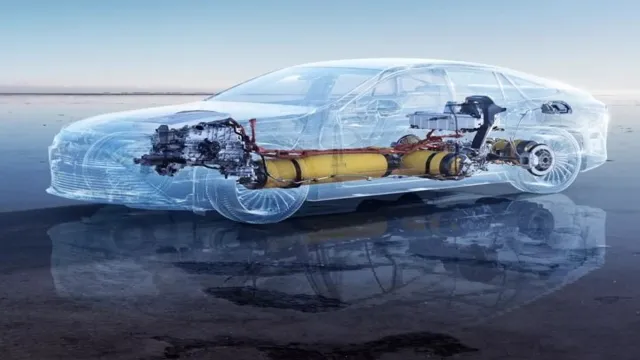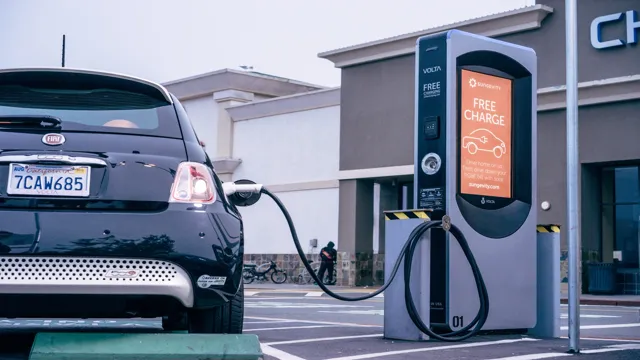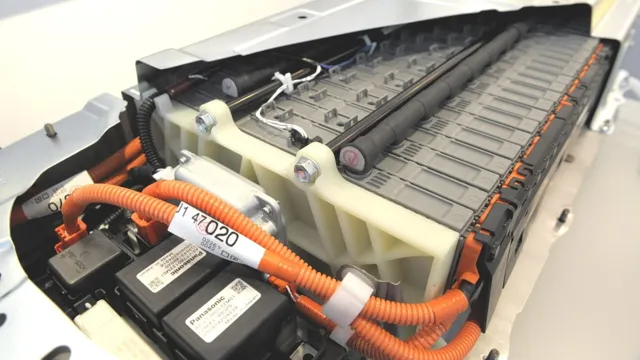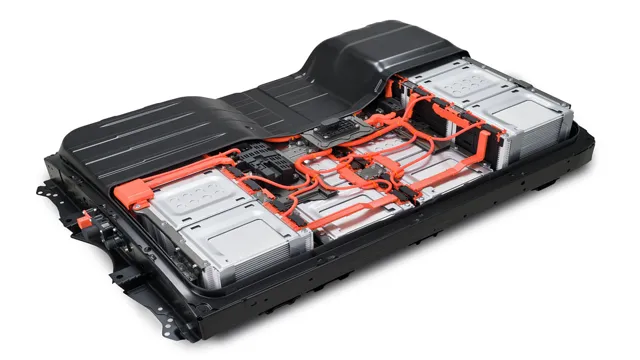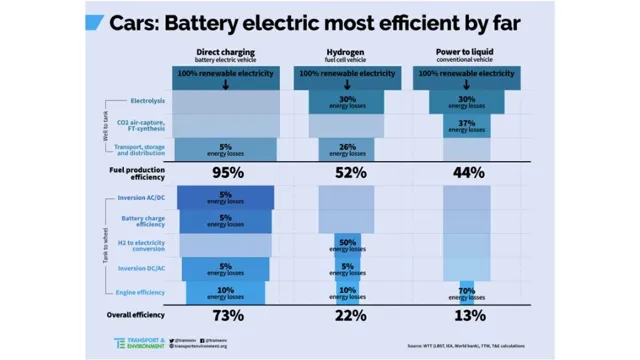Battery Electric Cars: Weighing the Pros and Cons of Eco-Friendly Driving
When it comes to choosing a new car, one of the biggest decisions you’ll have to make is whether to opt for a traditional gasoline-powered vehicle or a battery electric one. While electric cars have been around for a while, they’re still a relatively new innovation in the automotive industry, leading many drivers to wonder whether they’re worth the investment. In this blog, we’ll take a closer look at the pros and cons of battery electric cars, allowing you to make an informed decision and find the right vehicle for your lifestyle and needs.
Whether you’re looking to reduce your carbon footprint or simply save money on gas, this blog has got you covered. So sit back, relax, and let’s dive into the world of battery electric cars together!
Pros of Battery Electric Cars:
Battery electric cars have become increasingly popular due to their numerous advantages. Firstly, they are eco-friendly as they produce zero-emissions, making them a great option for those who are environmentally conscious. Additionally, they are extremely cost-efficient as they require lower maintenance costs compared to traditional gasoline-powered vehicles.
Another major benefit of battery electric cars is their quiet operation, making for a more pleasant driving experience for both the driver and passengers. Battery electric cars are also equipped with advanced technology that provides improved safety features, such as automatic emergency braking and lane departure warnings. Lastly, battery electric cars offer a smoother and more comfortable drive due to the absence of internal combustion engines, providing a quieter and more refined ride.
With all these advantages, it is no surprise that more and more people are opting to drive battery electric cars.
Lower Operating Cost
Lower Operating Cost One of the most significant pros of battery electric cars, especially when compared to traditional gas-powered vehicles, is the lower operating cost. Electric cars can save drivers a substantial amount of money in the long run because they are much more energy-efficient than gas-powered cars. While the initial purchase price may be higher, electric cars require significantly less maintenance, and electricity is much cheaper than gas.
Furthermore, electric cars often come with various incentives and tax breaks that can further decrease the overall cost of ownership. In addition to saving money on fuel and maintenance, electric cars are also much better for the environment since they emit zero or very little emissions into the atmosphere. Overall, the lower operating cost combined with the environmental benefits make battery electric cars an excellent choice for many drivers.
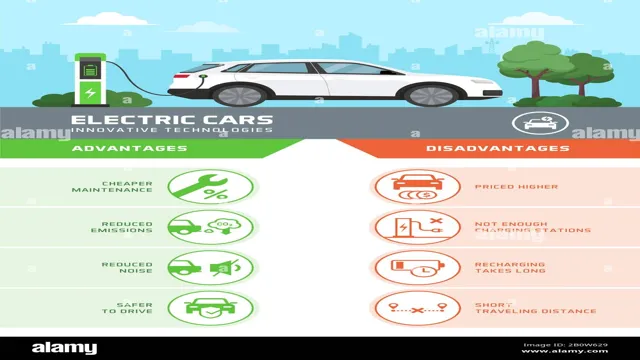
Environmentally Friendly
One of the most significant advantages of battery electric cars is their environmentally friendly aspect. Electric cars run on electricity, which is a clean source of energy, compared to gasoline-powered cars that use fossil fuels. Since electric cars don’t emit exhaust fumes, they help to reduce air pollution and emissions.
Also, electric cars’ batteries can be recycled, which reduces the environmental impact of battery manufacturing. Additionally, driving an electric car means reducing our dependence on oil, which, in turn, helps to reduce carbon emissions and fights climate change. As electric cars evolve and battery ranges increase, they will eventually become even more efficient and eco-friendly.
So, if you’re looking to be more environmentally conscious and reduce your carbon footprint, an electric car is definitely worth considering.
Quiet Operation
One of the top benefits of battery electric cars is their quiet operation. Unlike traditional gasoline-powered cars, electric cars don’t have a noisy engine or exhaust system. Instead, they use a quiet electric motor to power the vehicle.
This means that when driving an electric car, you won’t hear loud engine noises or the sound of gears shifting. This quiet operation not only reduces noise pollution, but it also provides a more pleasant driving experience. It allows you to enjoy the peace and quiet of the road, or to listen to music or have conversations without having to raise your voice to compete with engine noise.
Additionally, this lack of noise can be especially useful when driving in residential areas late at night or early in the morning, as it won’t disturb sleeping neighbors. All in all, the quiet operation of battery electric cars is a significant benefit and makes them an attractive option for drivers seeking a more comfortable and peaceful driving experience.
Instant Torque/Acceleration
Battery electric cars have a significant advantage over their gas-powered counterparts when it comes to instant torque and acceleration. The electric motor in an electric car can deliver power to the wheels almost instantaneously, providing a much quicker response time when accelerating from a stop. This can be especially noticeable at low speeds and in stop-and-go traffic, where electric cars can feel more nimble and responsive than cars with gas engines.
Additionally, because electric motors don’t have to rev up to high RPMs like gas engines, there’s no lag time before the power is delivered to the wheels. This makes electric cars feel smooth and linear when accelerating, with no sudden bursts of power. Overall, the instant torque provided by electric motors can make for a thrilling driving experience, with the ability to go from 0 to 60 in a matter of seconds.
Cons of Battery Electric Cars:
While there are many advantages to driving a battery electric car, there are also some downsides that should be considered. One of the biggest cons is the range anxiety that some drivers experience due to limited battery life. While there have been significant improvements in battery technology over the years, many EVs still have a range of only 100-200 miles, making long road trips difficult without frequent recharging stops.
Additionally, charging stations can be hard to find in some areas, making it inconvenient for drivers to recharge when necessary. Another issue with battery electric cars is the cost. While the cost of EVs has steadily decreased over the years, they are still generally more expensive than gas-powered cars.
This can make them less accessible to some buyers. Finally, the production of EV batteries relies heavily on rare or environmentally damaging materials, which can lead to ethical dilemmas. Despite these cons, battery electric cars remain a promising technology for reducing our reliance on fossil fuels and addressing climate change.
Limited Range/Charging Time
One of the main cons of battery electric cars is their limited range and charging time. While electric cars are becoming increasingly popular due to their eco-friendly nature, their limited range and long charging times can still present a challenge for drivers. This issue is particularly problematic for those who need to drive longer distances or who don’t have access to convenient charging stations.
Additionally, even when charging stations are available, the charging time can be lengthy, making it difficult to plan long-distance trips with confidence. However, electric car manufacturers are constantly working to improve battery technology and range, with some models now able to travel up to 400 miles on a single charge. As charging infrastructure continues to expand, the convenience of owning an electric car will only increase, making them a more viable option for sustainable transportation.
Higher Purchase Cost
When it comes to purchasing a Battery Electric Car (BEV), the higher cost is definitely a valid concern. BEVs might seem expensive at first, especially when compared to traditional gasoline vehicles. But, that’s because they’re still a relatively new technology, and manufacturing the batteries required for BEVs is still an expensive process.
Additionally, as with any new technology, economies of scale are not yet in full effect, which increases the cost. However, it’s important to keep in mind that the higher initial cost of BEVs is offset over time due to minimal maintenance and energy savings. Plus, national and local governments offer purchase incentives like tax credits that can help make them more affordable.
Despite the higher purchase cost, BEVs are a smart investment, both environmentally and financially.
Potential Battery Degradation
As much as electric cars are seen as the future of transportation, they do come with some drawbacks. One of the major cons of battery electric cars is the potential degradation of their battery life. Over time, the batteries that power electric cars lose some of their capacity, leading to a reduction in range.
This means that you’ll need to charge your vehicle more frequently, which can be a hassle for people who use their cars extensively or live in areas without readily available charging points. Additionally, because battery technology is still relatively new, replacing an electric car battery can be expensive. However, with proper care and maintenance, you may be able to extend your battery life, which will save you money in the long run.
It’s important to consider these factors when weighing the pros and cons of owning an electric car and to make sure that you choose a car that suits your driving needs and budget.
Future Outlook for Battery Electric Cars
Battery electric cars have become increasingly popular in recent years due to their eco-friendliness and energy efficiency. They have several advantages over traditional gasoline-powered vehicles, including lower fuel costs, reduced emissions, and a quieter ride. However, battery-electric cars also have their downsides, such as a limited driving range and longer recharging times.
Nevertheless, with advances in battery technology, these cons are quickly becoming less of an issue. In fact, battery-electric cars are rapidly becoming more practical, reliable, and affordable. As more and more consumers are becoming aware of the benefits of electric cars, it is expected that their demand will only continue to grow in the coming years, leading to a cleaner and more sustainable future for all.
Conclusion
After weighing the pros and cons of battery electric cars, it’s fair to say that the future is electric – but it won’t be without its challenges. With zero emissions and improved energy efficiency, electric cars offer a cleaner and more sustainable way of driving. However, the limited driving range and longer recharge times are still major concerns.
As we continue to innovate and improve the technology behind these vehicles, we can expect to see even greater benefits and fewer drawbacks in the years to come. In the meantime, for those who prefer a guilt-free driving experience and don’t mind planning ahead for longer trips, an electric car could be the perfect fit. As for the rest, well, they might just need a few more batteries to be convinced.
“
FAQs
What are the advantages of battery electric cars?
Battery electric cars have lower operating costs, produce zero emissions, and are quiet and smooth to drive.
What are the disadvantages of battery electric cars?
Battery electric cars have a higher upfront cost, limited driving range, and longer recharging times compared to conventional cars.
How do battery electric cars affect the environment?
Battery electric cars produce zero emissions and lower carbon footprints compared to conventional cars. However, their environmental impact depends on the source of electricity used for recharging.
What is the current state of battery technology for electric cars?
Battery technology for electric cars is improving rapidly. In recent years, advancements in battery chemistry and manufacturing have led to increased energy density, longer driving ranges, and faster recharging times.

